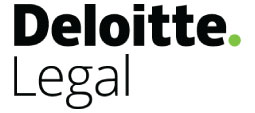The EU Directive on Work-life balance was implemented in the Slovenian national legislation on 01 April 2023, resulting in notable changes and obligations for employers. As for the EU Directive on Transparent and predictable working conditions, its provisions will be incorporated within the amendments to the Employment Relationship Act, which will anticipatedly be presented to the National Assembly for adoption in the upcoming autumn. What implications do these directives hold for businesses?
This report is designed to help companies to understand the requirements and how they have been implemented.
Implementation of EU Directive on Work-Life Balance (EU Directive 2019/1158)
Has the directive been implemented in the jurisdiction?
Yes.
What is the status of the implementation or draft implementation?
The Act Amending Parental Protection and Family Benefits Act (“The Act”) has been adopted to implement in Slovenia the provisions of EU Directive 2019/1152. The Act was adopted on 24 November 2022, and applies from 01 April 2023.
What are the key changes for employers and employees?
- Paternity leave (“ocetovski dopust”)
- The new law changes the way paternity leave is taken.
- The duration of paternity leave − which a father can take between the child being born and reaching 3 months of age − was reduced from 30 to 15 days. However, this difference of 15 days was included into an increase of the non-transferable element of parental leave (point 2. below).
- Parental leave (“starsevski dopust”)
- The new law changes the number of days of parental leave and how it is divided and allocated.
- The length of parental leave for each parent is extended from 130 days to 160 days; although 100 days of the parental leave can be transferred from one parent to another, the remaining 60 days are non-transferable.
- The non-transferable element may be used until the child is 8 years old at the latest.
- Reimbursement for full absence from work (“nadomestilo za polno odsotnost z dela”)
- The maximum amount of parental allowance continues to be limited to 2.5 times the average monthly salary. However, the Act takes a new approach in calculating the average salary, which the legislator expects to result in
an increase of the actual maximum amount of the parental allowance.
- Part-time work due to parenthood (“delo s krajsim delovnim casom zaradi starsevstva”)
- The period of part-time work for the care and protection for at least two children is being extended until the youngest child reaches the age of 8 (previously until the end of Year 1 of primary school). For one child, the period remains the same as before the adoption of the Act, i.e. until the child is 3 years old.
- Both parents will now be able to work part time to care for their children at the same time, up to a combined maximum of 20 hours per week. Previously, only one parent could exercise this right, not both at the
same time.
- Partial payment for loss of income (“delno placilo za izgubljeni dohodek”)
- If the child is in an institution where he or she receives free all-day care, one of the parents will now also be entitled to proportional partial payments for lost income for 10 / 20 / 30 hours respectively a week for a period of one year if the child has been at home for at least 90 / 180 / 270 days and, in all cases, the parents have actually cared for him or her in the last year before the application is made. Until now, the proportional partial payment for loss of income was limited to ¼ of the full amount (i.e. only for 10 working hours a week) if the child was cared for at home for at least 90 days within the last year before the application.
What are the main actions for HR departments in preparing for the changes?
- Review and revise internal labour documentation, especially those employment policies and practices that are applicable to employees with relation to their parental entitlements and employment contracts.
- Training to acquaint HR colleagues with the new rules.
Implementation of EU Directive on Transparent and Predictable Working Conditions (EU Directive 2019/1152)
Has the directive been implemented in
the jurisdiction?
No.
What is the status of the implementation or draft implementation?
The provisions of EU Directive 2019/1152 will be transposed into the legal order of the Republic of Slovenia by the adoption of the Act Amending the Employment Relationships Act (ZDR-1). The proposal of the latter has been recently (in June 2023) subject to a public discussion and is currently undergoing coordination within the government. The finalized text is anticipatedly expected to be presented to the National Assembly for adoption in the upcoming autumn. Nevertheless, please note that many provisions of the Directive are already included in the current ZDR-1.
What are the key changes for employers and employees?
- Information about the employment relationship and minimum requirements relating to working conditions:
- Major changes to existing legislation are not foreseen, since under the current legislation the employer must already give the employee a written proposal of the employment contract containing employment terms (e.g. place of work, duration and conditions of the probationary period, amount of paid leave etc.) at least 3 days before it is due to be concluded. Moreover, any changes to the work conditions have to be made in written form already under the current legislation (either with an annex to the employment contract or even an obligatory conclusion of a new employment contract).
- Slovenian legislation already contains provisions on factors including probationary period (a maximum duration of 6 months), parallel employment, predictability of the working schedule and work assignments, on-demand contracts (for agency workers), permissible absence for educational purposes etc.
- Amendments are required in the following areas:
- The regulation of the potential for the employee to request a form of employment following a 6-month probationary period with more predictable and secure working conditions (i.e. the transition to another form of employment).
- The proportionate limitation of the probationary period in the case of a fixed-term contract, and the prohibition of a probationary period in the case of a new successive contract of employment.
- To some degree, regarding (i) the regulation of employee training and (ii) the protection of those employees who exercise their rights under the Directive.
What are the main actions for HR departments in preparing for the changes?
- Review and update labour documentation such as employment contracts, templates for additional information, employment policies and practices etc.
By Anja Primozic, Senior Legal Associate, and Nika Logar, Legal Associate, Deloitte Legal Slovenia
This communication contains general information only, and none of Deloitte Touche Tohmatsu Limited (“DTTL”), its global network of member firms or their related entities (collectively, the “Deloitte organization”) is, by means of this communication, rendering professional advice or services. Before making any decision or taking any action that may affect your finances or your business, you should consult a qualified professional adviser. No representations, warranties or undertakings (express or implied) are given as to the accuracy or completeness of the information in this communication, and none of DTTL, its member firms, related entities, employees or agents shall be liable or responsible for any loss or damage whatsoever arising directly or indirectly in connection with any person relying on this communication. DTTL and each of its member firms, and their related entities, are legally separate and independent entities.


